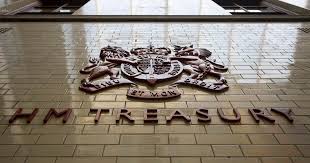To help emerging nations make their sovereign debt more manageable and maintain access to private investment, the British government has formed a coalition that brings together the public and private sectors.
Although the global interest rate hike cycle and the wave of sovereign debt defaults that followed the Covid-19 outbreak have mostly subsided, dozens of nations continue to face unstable debt repayment expenses.
The majority of global bond lending to sovereign states is legally located in London and New York, while the majority of bonds issued to African countries are domiciled in London.
According to a statement released by the UK Treasury on Monday, the London Coalition on Sustainable Sovereign Debt would prioritize increasing the clarity and transparency of debt contracts, resolving issues with group lending practices, and enhancing how loan terms handle natural disasters.
Additionally, it stated that promoting “more resilient borrowing practices” and equitable and transparent debt restructuring would increase security and open up new markets for the UK.
Emma Reynolds, the Treasury’s economic secretary, and Jose Vinals, a banker and economist who most recently served as chairman of Standard Chartered, will co-chair the new committee.
Just one week to the United Nations Financing for Development meeting, a once-in-a-decade occasion that begins on June 30 in the Spanish city of Seville, the gathering was established.
Additionally, the debut coincides with historic aid cuts and concessional funding from wealthier countries like the US and the UK.
Legal reforms in London and New York that would stop lenders from stalling debt restructuring talks when nations defaulted were among the recommendations made in a recent study on financial reform supported by the Vatican.
The measure has not yet been enacted by either jurisdiction.

















